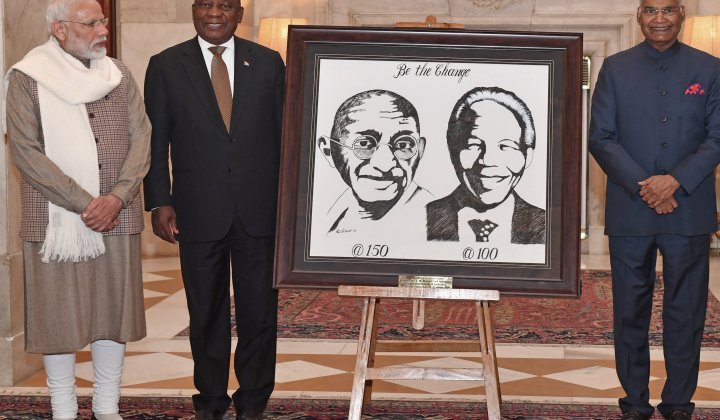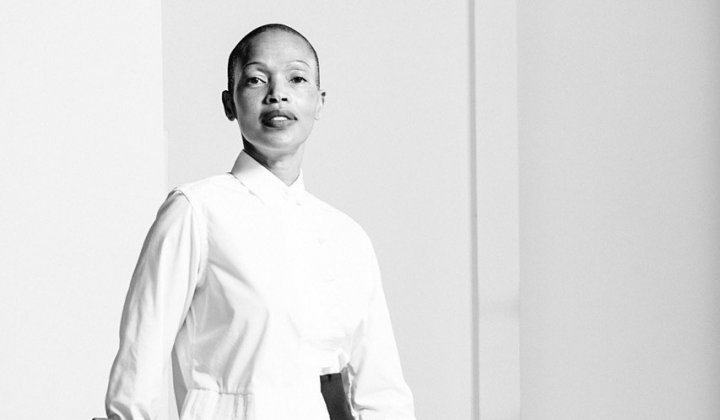Issues stem from basic education
It’s widely acknowledged that South Africa’s basic education sector is facing serious challenges. We’re still sitting at just 30% of matriculants finishing school with university exemption. In 2018, we had roughly 800 000 matric candidates, 170 000 of whom achieved university exemption. For the amount that South Africa spends on education, these figures continue to disappoint.
In my mind, quality coming out of the education system is the only true success metric. The fact that we have a 76% pass rate means very little. South Africa spends over R200 billion a year on basic education (roughly 15% of the national budget). According to the UN, this is proportionately higher than many developed nations’ basic education budgets, including the US, the UK and Germany. Yet South Africa’s throughput rates remain low. Africa Check reports that of children that started grade 1 in 2006 in South Africa, only 34.7% obtained a matric pass in 2017.
Access to universities remains challenging
Those learners who do emerge from high school with a Bachelor’s exemption are competing for limited places at just 24 higher education institutions. Fewer are entering the Technical and Vocational Education and Training (TVET) system. This is a pity, given that the TVET sector can play a meaningful part in addressing skills development challenges, if only we would adjust our mindsets as a society, and fast-track the rebuilding of this sector.
Access to tertiary education is a socioeconomically polarising issue. Universities’ admission rates remain constrained. In 2019, University of Pretoria had the highest number of first-year admissions among the top universities at 10 000, followed by the University of the Witwatersrand (5 000 places), and the University of Cape Town (4 500 places). But each would have received up to 50 000 applications. When we say it is highly competitive, we really mean high odds are stacked against many.
Transformation policies at universities are often cited as the reason young people opt to go abroad. And let us be clear about who those young people are. They are economically privileged and have this option. I strongly believe transformation policies remain important if access and equity are ambitions South Africa intends to realise. We need the so-called “Fallist” movements to make higher education accessible – in terms of teaching, learning, curriculum, space and social experience. We need transformation policies and equity practices to overcome historical structuring that prevented massive sections of South Africa’s population from accessing universities. That said, the lived experience of some young white South Africans coming out of high school is that they are doomed before they enter the race because of such policies. Places are so few to begin with, and then they also have to compete on the basis of equity and redress requirements.
Political and economic uncertainty driving brain drain
A recent survey by the Boston Consulting Group and The Network in association with CareerJunction examined labour trends, work preferences and professional mobility globally. It included 366 000 people in 197 countries. One of the findings was that more young South African working professionals are willing to relocate for work than their global contemporaries.
While 57% of respondents said they would move to another country for work, the figure among South Africans was 71%. The study also showed South Africans’ willingness to relocate has increased from 64% in 2014.
Reasons for emigration range from personal safety/security to education, a weak currency, lack of employment opportunities, and political uncertainty. Up until a few years ago, it was largely white South Africans leaving. However, this demographic is shifting, and I think this is telling. And quite a challenge to the perception of a mass flight of “white monopoly capital”. To me, it is becoming apparent that it’s a very personal decision based on things like security, and political and economic stability – not necessarily a race-based choice. People have genuine concerns around the viability and sustainability of the country, and what this means for their families.
In 2018, 86% of top South African executives polled in the Jack Hammer Executive Report said they would consider an offer to move abroad, and 49% of these respondents were black professionals. According to the Enterprise Observatory of South Africa (EOSA), the Department of Home Affairs’ 2017 white paper on emigration shows that the annual number of black professionals leaving South Africa currently exceeds the tally of professional white emigrants. Of course, in absolute terms, this is also a function of the population demographics of South Africa.
Quality university education – perceptions vs. reality
There is also a perception that university education quality has declined in South Africa. This is simply not true. South Africa is still the only African country with a university ranked within the top 200 in the world (University of Cape Town at 156th, according to the Times Higher Education World University Rankings' top 1 000 universities in the world). Overall, Egypt and South Africa are the two best represented African countries globally, Egypt with 19 and South Africa with nine universities.
University rankings are based on 13 different indicators including teaching, research, research impact, innovation and international outlook.
Some of what may have been considered exclusionary practices at our universities have been the last vestiges of control that the university administrators have had in trying to uphold their global competitiveness.
Anecdotally, I have worked and studied in seven different universities – three in South Africa, one in the UK, two in the USA – and I now work at a university in Rwanda. I remain convinced that the quality of higher education in South African institutions remains high, based on my comparative experiences. In my experience, the quality of postgraduate students in African universities is on par with, and sometimes superior to, what I have experienced in western institutions. The research outputs of some of our academics are world-renowned. Quality of institutions alone is not a reason to explore educational emigration because South Africa’s institutions stand tall among the best in the world.
Solutions for education in South Africa
We need to figure out how to collectively solve our educational crisis, especially at the basic education level. Government is not going to do it alone. A bigger role needs to be played by business, but not just in terms of funding. I would argue we don’t have a funding problem. We are one of the biggest spenders on education on the continent. We need intentional investment in the form of industry expertise to help align curricula with the skills requirements of the 21st century and our 21st-century economy. We are less than 4 000 days away from the date predicted to be when a quarter of the world’s population will be African and under 25. Reinventing our education system with all hands on deck is now an urgent requirement
There’s a huge need to restructure internships and ensure they can happen simultaneously with learning in a higher education institute. It’s too late at the end of the qualification. We need on-the-job experiences to be happening as early on as high school, and as frequently as possible through the post-secondary schooling career.
The TVET system is built for that, and if we can instil a level of quality in that system, we can see a much-needed uptick in turnaround times to turn matriculants from unskilled certificated people to deployable, skilled practitioners in industry with relevant skills.
5 considerations for parents looking to educate children abroad
1. Decide early: If considering tertiary education abroad, make that decision as early as possible. It can inform high school choice. For example, choose a school that offers international school exit qualifications which are globally recognised. Alternatively, there are bridging courses available for students after matric, including taking exams for SATs, which are requirements in the US, for example.
2. Do your homework: Research qualification requirements abroad, and not just the university. For example, I encountered a grade 12 student planning to study architecture in the USA. She discovered she needed to supply a portfolio of two years’ experience, which resulted in a delay in her application.
3. Understand the costs: A Bachelor’s qualification in South Africa, including accommodation and living expenses, is roughly R200 000 to R300 000 per annum. An equivalent qualification at Harvard University is R1.1 to R1.2 million, excluding travel costs. Montreal University – which was recently flagged as the top destination city of choice for international study by Times Higher Education – costs US$12 000 to US$15 000 for tuition alone, plus a similar amount for living expenses.
4. Think long term: Is the plan for the child to study abroad and then return to South Africa, or to emigrate permanently? This can affect career choices. For example, if you study law in the USA and write the Bar Exam there, the path to practice law in South Africa will be extended should you return.
5. Don’t underestimate lifestyle factor: Studying in a country where one doesn’t speak the language, where the climate is unfamiliar or social structure is very different will yield its own challenges. These need to be identified upfront.






